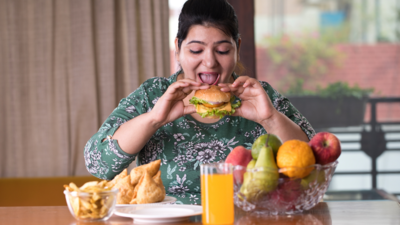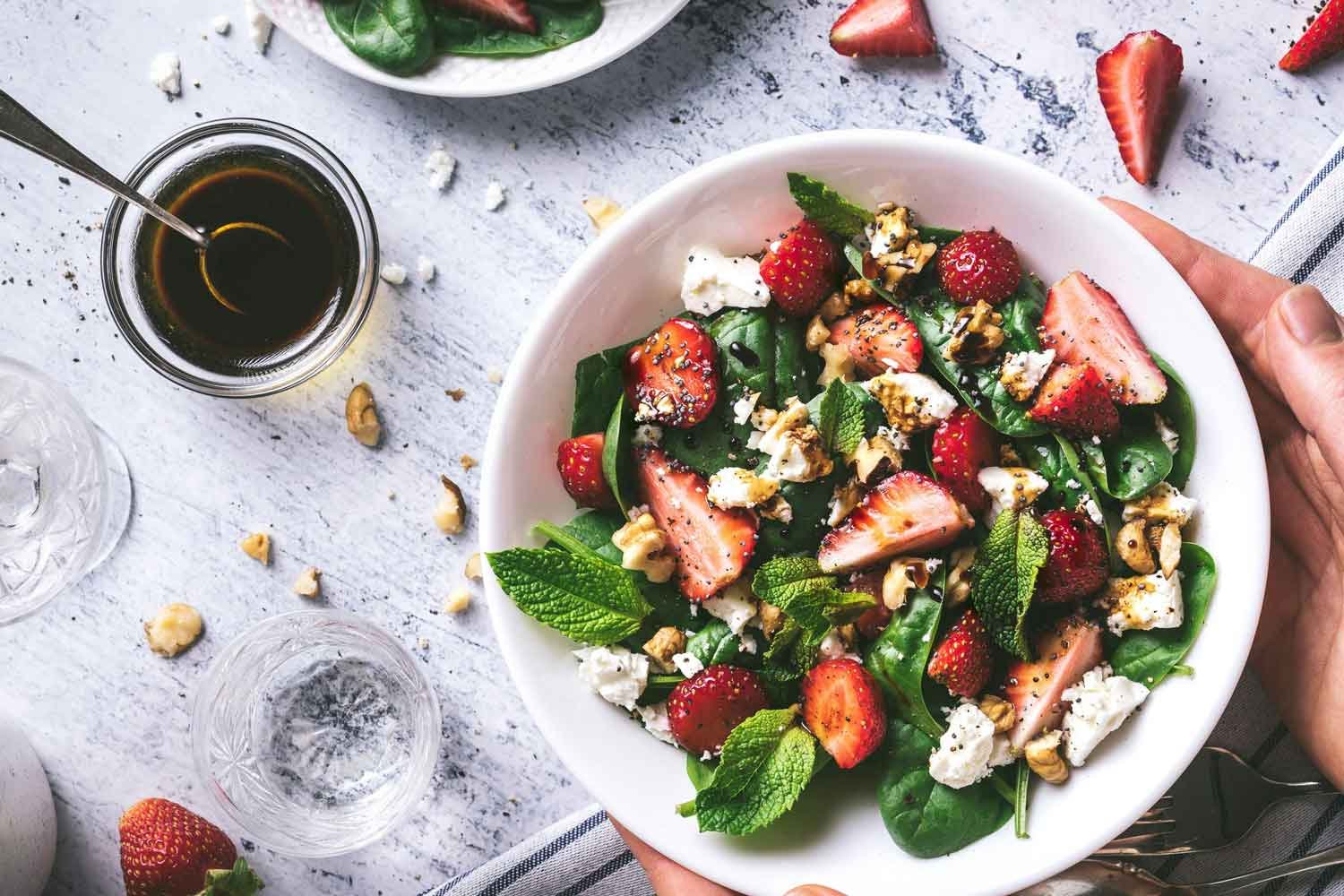Have you ever thought about how fast you chew your food? Believe it or not, slowing down your chewing could be a simple trick to help you lose weight.
When you take your time to chew properly, your body gets signals that you’re full sooner, which might stop you from overeating. You’ll discover how chewing slowly affects your digestion, appetite, and ultimately your weight loss journey. If you want an easy, natural way to support your goals, keep reading—this could change the way you eat forever.
How Eating Speed Affects Digestion
Eating speed can change how your body digests food. Slow chewing helps the body prepare better for digestion.
When you eat fast, your stomach works harder to break down large pieces of food. This can cause discomfort and poor digestion.
Role Of Saliva In Breaking Down Food
Saliva starts the digestion process by mixing with the food in your mouth. It contains enzymes that break down starches into sugars.
Chewing slowly gives saliva more time to work. This makes it easier for your stomach to digest food and absorb nutrients.
- Saliva moistens food for easier swallowing
- Enzymes in saliva start breaking down carbohydrates
- More chewing means more saliva and better digestion
Impact On Nutrient Absorption
Slow chewing helps break food into smaller pieces. Smaller pieces allow your body to absorb nutrients more easily.
Eating fast can lead to larger food pieces that are hard to digest. This can reduce the amount of nutrients your body gets.
- Small food pieces expose more surface area for digestion
- Better digestion improves vitamin and mineral absorption
- Slow eating supports healthy metabolism and weight control

Connection Between Chewing Pace And Satiety
Eating slowly by chewing food well can help you feel full faster. When you chew more, your body sends signals that reduce hunger.
Chewing slowly gives your brain time to catch up with your stomach. This process helps you eat less and may aid in weight loss.
Signals That Control Hunger
Your body uses different signals to tell you when you are hungry or full. These signals come from your stomach, hormones, and brain.
When you chew food slowly, these signals have time to work well. This helps you eat only what your body needs.
- Stomach stretches as it fills with food
- Hormones like leptin and ghrelin change levels
- Brain receives signals about fullness
Time Delay In Feeling Full
It takes about 20 minutes for your brain to register fullness after you start eating. Eating too fast can cause you to eat more before feeling full.
Chewing food slowly extends meal time. This gives your body enough time to send fullness signals and reduce overeating.
- Slow chewing helps recognize fullness sooner
- Eating fast may lead to overeating
- Longer meals improve digestion and satisfaction
Scientific Studies On Chewing And Weight Loss
Chewing food slowly may help people eat less. Some studies look at how chewing affects weight loss.
Research explores if slow chewing changes hunger or calorie intake. This may support weight control efforts.
Key Research Findings
Studies show that chewing food more can reduce the amount eaten. It might also make people feel full faster.
Chewing slowly allows the brain to get signals of fullness. This process helps lower overall calorie intake during meals.
- Increased chewing leads to eating smaller portions
- Slower eating improves fullness signals from the brain
- Some participants lost weight when they chewed more
- Chewing may help control blood sugar levels
Limitations And Contradictions
Not all studies agree on the benefits of chewing more. Some show little to no effect on weight loss.
Results vary due to small sample sizes and short study periods. Other habits also affect weight, making it hard to isolate chewing.
- Some studies have few participants
- Short study duration limits long-term conclusions
- Other eating habits can influence results
- Individual differences affect how chewing impacts fullness

Practical Tips To Slow Down Eating
Chewing food slowly can help you eat less and feel full faster. Taking your time during meals supports weight loss efforts.
Here are some practical tips to help you slow down your eating habits and enjoy your food more.
Mindful Eating Techniques
Mindful eating means paying full attention to your food. Focus on the taste, texture, and smell of each bite.
Put your fork down between bites. Chew slowly and enjoy the moment. This helps you notice when you feel full.
- Eat without distractions like TV or phones
- Chew each bite at least 20 times
- Notice the flavors and textures of your food
- Pause and breathe between bites
Portion Control Strategies
Smaller portions can help you eat slower and reduce calorie intake. Use smaller plates or bowls to serve your food.
Serve yourself one portion at a time. Avoid eating directly from large packages to prevent overeating.
- Use smaller plates to limit portion size
- Measure servings before eating
- Avoid second helpings right away
- Drink water between bites to slow eating
Other Factors Influencing Weight Loss
Chewing food slower can help with weight loss, but it is not the only factor. Many other habits and choices affect how your body loses weight.
Understanding these factors can help you make better decisions for your health and weight goals.
Exercise And Physical Activity
Exercise helps burn calories and builds muscle. Muscle burns more energy than fat, even when resting.
Physical activity also improves mood and boosts metabolism. It supports long-term weight loss by increasing energy use.
- Walking or biking daily helps burn calories
- Strength training builds muscle and burns fat
- Regular exercise improves overall health
Balanced Diet Importance
A balanced diet gives your body the nutrients it needs. It includes proteins, fats, and carbohydrates in good amounts.
Eating whole foods like vegetables, fruits, and grains helps control hunger and energy levels. Avoid too many processed foods.
- Protein helps build and repair muscles
- Fiber from fruits and vegetables aids digestion
- Healthy fats support brain and body functions

Frequently Asked Questions
How Does Chewing Food Slower Help With Weight Loss?
Chewing slowly allows better digestion and signals fullness to the brain. This reduces overeating and calorie intake, aiding weight loss.
Can Slow Chewing Improve Metabolism For Weight Loss?
Slow chewing boosts digestion efficiency but has a minimal direct effect on metabolism. However, it supports weight loss by preventing overeating.
How Long Should I Chew Each Bite For Weight Loss?
Aim to chew each bite 20 to 30 times. This pace helps digestion and promotes feeling full sooner, reducing calorie intake.
Does Slow Chewing Reduce Calorie Consumption Effectively?
Yes, slow chewing encourages smaller portions and longer mealtime, which helps reduce overall calorie consumption for weight management.
Conclusion
Chewing slower might help with weight loss. It gives your brain time to feel full. This can lead to eating less. You may enjoy your meals more too. It encourages mindful eating. Try to chew each bite 20-30 times. Make it a habit.
You’ll notice changes over time. Small steps can make a big difference. It’s a simple yet effective strategy. Good for those seeking healthier habits. Remember, patience is key. Give it a try at your next meal. It might be the change you need.
Stay consistent for better results.



